The other day I ran across a video in which some guy listed the ten best horror novels of all time and well, no, no they weren’t. Over half them were more properly classified as scifi or thrillers, not horror. I mean, c’mon!
In the guy’s defense, horror has been ill defined and most books thus categorized are so because (a) some authority said they were or (b) there is a generalized consensus to that effect.
Don’t listen to these people.
Horror is pretty much viewed as anything that scares you, which is a category so broad as to make it meaningless. I mean, poison ivy scares me but unless it becomes self-aware and starts chasing me around the yard (hmm, story idea, write it down…) it’s not horror. Serial killers are not horror, either, although they can be horrifying. Neither are tyrannical oppressive governments a la Catching Fire or Starting a Fire or whatever that thing is, nor bleak post-apocalyptic landscapes like Cormac McCarthy’s The Road, although it comes close.

Scaring you is only part of the formula; there are at least two other elements necessary before it is true horror. First, some supernatural influence, preferably associated with some religious concept of good and evil. The supernatural doesn’t have to be an actual supernatural force, but an adherence, a belief, a dedication to it. That’s why Red Dragon is horror while Silence of the Lambs isn’t; it’s a thriller. And second, a sense of helplessness in the face of forces too powerful for mortals to comprehend, much less resist.
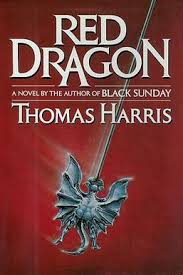
In other words, ghosts, monsters, witches, cults, entities, demons, and all their acolytes. Everything else is either scifi, fantasy, thrillers, or crime.
You can see already how my definition violates the norms. Alien and Aliens are considered horror movies, but they’re actually scifi. Scary scifi, to be sure, but scaring you is not sufficient criteria. The aliens are science based, not supernatural, and there’s no sense of helplessness against them, just the need to find the proper weapon. Hannibal Lecter is a criminal, not a monster, although that’s an apt one word description of his sociopathology. And elves and dwarves and hobbits and dragons are part of a world-building exercise, although there’s plenty of supernatural things like wizards and Balrogs running around in those books. You expect dragons and Balrogs in that world, though, so it’s not a sense of helplessness that overwhelms the hobbits but the need to deal with what used to be a distant problem.
The sense of helplessness is key. When normalcy is confronted by something out of ken, then normal human responses are rendered ineffective, and the human has to look beyond his usual resources for a solution. Hannibal Lector can be shot, but what do you do about Dracula? Need a cross and garlic, which is just silly in the human world. But unless you do that, you are helpless before the Lord of the Vampires.
So, given the above criteria and without further ado, the best 10 horror novels of all time:

10. Dracula, by Bram Stoker. Stoker’s compilation of old wives and folk tales in the person of Count Dracula, an evil creature bent on slaughter and domination, remains the classic horror novel, probably the first true horror novel although there are preceding candidates, such as Le Fanu’s Carmilla and Walpole’s The Castle of Otranto. But Dracula is light years beyond those. Stoker pulls no punches. The Count is evil and malevolent and has no redeeming value and there is no compromise and he is darn near impossible to kill, at least by human methods. Stoker introduced the time honored horror trope of the Unexpected Expert. Jonathan Harker and Mina and the rest of the gang are helpless before Count Dracula’s onslaught until Van Helsing shows up. One of the best aspects of this novel is the aftermath: no one remains untouched, no one remains unscarred, which is the nature of evil. It corrupts everyone it touches.
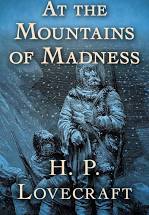
9. At the Mountains of Madness, H. P. Lovecraft. Alright, okay, not an actual novel, a story collection, with only the title story long enough to be considered a novella. But, these stories form the core of the Cthulhu Mythos, one of the most terrifying alternate realities in literature, with its Old Ones and sacrifices and Dunwich Horrors and distorted, malevolent gods bent on eating us. Lovecraft almost single handedly created the dark forces genre, and King and Connolly and Straub owe him. Was he a racist? Oh, distressingly so. Was his prose turgid and stiff? You betcha. But his descriptions of the horrors lurking in the dark will curl your hair.
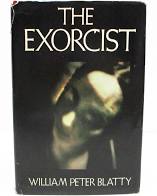
8. The Exorcist. The movie was scary as crap and ushered in the entire demons-are-gonna-get-ya flicks of the 70s, like The Amityville Horror and The Omen, but those all missed the novel’s larger point: our souls are battlegrounds for ancient powers. An unbelieving world dismisses these powers as quaint relics of a superstitious age, at its peril.
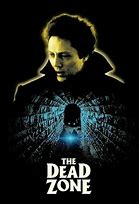
7. The Dead Zone. I have railed about Stephen King in other places and most of his usual suspects, like It and Pet Sematary, are not on this list because, well, they’ve got problems, but this one deserves a spot. Uncle Ben’s adage that with great power goes great responsibility is the core of this novel. When an accident gives Johnny Smith the ability to tell the future by merely grasping someone’s hand, he decides to use this power for the betterment of mankind. With terrible results.

6. Red Dragon. My only entry of the serial killer/slasher type novels which I generally categorize as thrillers because this serial killer, dubbed the Tooth Fairy, is doing all his butchering so he may transform into something else, William Blake’s painting called Red Dragon. Take a look at it above: that ain’t Smaug, that’s the devil, and while there are no actual supernatural elements in this book, the Tooth Fairy’s enthusiastic dedication makes up for that lack. This book introduces a minor character named Hannibal Lecter, who isn’t as interesting as the Tooth Fairy. This is a much better novel than Silence of the Lambs, which ain’t no slouch of a novel, either.
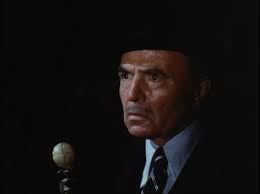
5. Salem’s Lot. This King novel, in my opinion, is sheer genius, as close to genius, anyway, that the King can reach. His vampire is the traditional Stoker kind, not something cool and glittery and angst-ridden, and is pretty terrifying in a Nosferatu kind of way. Worse, though, is the monster’s familiar, Straker, who, ever since the 1979 TV series, I always picture as James Mason. It’s quite something that you’re actually more terrified of the human servant than it’s evil master.

4. The Other. One could easily make the argument that this does not meet my criteria because there’s no clear supernatural element here. Holland and Niles seem like your typical creepy thirteen year old twins, but are they actually twins? Are they actually alive? Who knows? That uncertainty gives this extraordinarily well written novel an air of constant dread.
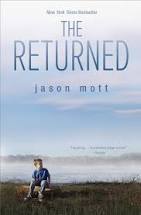
3. The Returned. More eerie than frightening, this is one of the most unnerving zombie novels written. Well, technically not zombies but revenants…except we don’t know how the dead were raised and there could be some voodoo involved so, benefit of the doubt. The zombies don’t want to eat our brains, they just want to resume lives so rudely interrupted by death some years, even decades before. And the non-dead aren’t too happy with this. Half the time this novel is a moral tale of acceptance, and/or a metaphor for prejudice, but dead people coming back and asking for their old jobs and houses back may be a bridge too far for even the most tolerant among us. Especially when no one has any idea why this is happening.
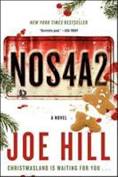
2. NOS4A2. Apples not falling far from trees here, and it is so good that Joe Hill, Stephen King’s son, completely understands the nature of horror, more so, I believe, than his Dad does. At least, recently. This is a scary, scary book of a monster/ghoul/vampire whatever keeping himself young by corrupting the souls of children. Yes, there’s some oddness, such as the telekinetic/teleportation powers of the heroine, Victoria McQueen, but all forgivable because Hill weaves it all so well.
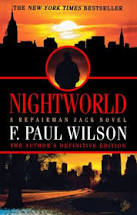
1. Nightworld. This is absolutely the most hair-raising novel I have ever read. There are scenes that made me gasp out loud. Maybe I’m a sucker for end-of-the-world gotterdammerung apocalyptic divine judgment novels…are there really that many of those?…but this remains for me the best horror novel ever. That may come as some surprise because Wilson is kind of scattershot. He tried to create a series around a character named Repairman Jack but it didn’t really go anywhere. Nightworld is a Repairman Jack story, the last of what Wilson loosely called The Adversary cycle. You probably know the first book, The Keep, which was made into a fairly decent movie, but it and the other Adversary novels don’t really seem connected to each other. Until you get to this one. Which will blow you away.